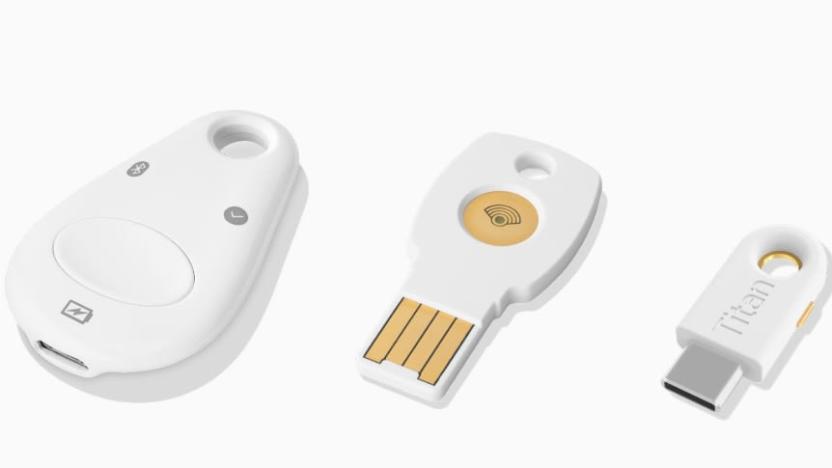MFA
Latest

Coinbase hackers exploit multi-factor flaw to steal from 6,000 customers
Bad actors were able to steal cryptocurrency from around 6,000 Coinbase customers by exploiting a multi-factor authentication flaw.

$35 off coupon makes Google's Titan security keys almost free
Whether you use Android or iOS, a hardware security key can provide even more protection against password theft or phishing. It's even more secure than other forms of multifactor authentication, because the site you're logging into has to verify itself to the security key too, which can help protect you against increasingly-tricky phishing attacks. Now, on the same day that Apple increased support for security keys on iOS 13.3, Google has kicked off a sale on its Titan security keys that makes them cheaper than we've ever seen before. Using the code "B-TITAN35OFF" can take up to $35 off of a purchase of security keys, so you can snag the wireless-equipped key that connects over USB, Bluetooth or NFC for just $3.99 (the price of shipping), instead of $35, or a pair of keys that adds a USB unit, at just under $20 instead of $50 plus shipping. It even appears that the code will work on multiple orders, so you could order them separately and use the discount on each one. Looking for the USB-C key that Google teamed with Yubico on? Apply the coupon code and it can be yours for a total of $9.29.

Microsoft buys PhoneFactor, adds smartphone authentication to its cloud services
With a hand-in-glove relationship with the world of business, it's key that Microsoft ensures it can keep companies data safe. That's what prompted Steve Ballmer to whip out his checkbook to snap up PhoneFactor, a multi-factor authentication company that uses smartphones instead of code-generating security tokens. With its new toy, Redmond plans to integrate the feature into its services like SharePoint, Azure and Office 365, letting users sign on with their own device as a key element of the signing in process.

New York University introduces MFA in 'Game Design,' starting fall 2012
New York University's Game Center, already a bastion of game development in the Northeastern US, announced this week that it will open a Master of Fine Arts program for "Game Design" in fall 2012. The Game Center's blog revealed the new program this week with a tentative description of the program's offerings and faculty, pinning names like Frank Lantz and Eric Zimmerman to the staff. The two-year program is said to focus on "game design, game programming, visual design for games, and game criticism." Wait, "game criticism?" According to the MFA program's website, students can focus on criticism for the game design degree, "which means writing about games with a focus on game design and player experience." The site further adds, "A student with this focus will be well-prepared to become a game journalist or critic, a theorist or researcher, or a scholar or historian." There is no mention, however, of the crushing debt you'll be unable to pay with a game journalist's salary. We kid! Regardless, between creating individual projects and working in groups, the NYU MFA program intends on educating future game devs in a wide variety of disciplines, across a varied spectrum of virtual platforms (from social to console, and everything in between) -- even game journalism, it would seem. Interested parties can find out more info through NYU's graduate program portal, but you'll probably want to read this FAQ first. That thesis sounds like a doozy!

Emoti-bots turn household objects into mopey machines (video)
Some emotional robots dip deep into the dark recesses of the uncanny valley, where our threshold for human mimicry resides. Emoti-bots on the other hand, manage to skip the creepy human-like pitfalls of other emo-machines, instead employing household objects to ape the most pathetic of human emotions -- specifically dejection and insecurity. Sure it sounds sad, but the mechanized furniture designed by a pair of MFA students is actually quite clever. Using a hacked Roomba and an Arduino, the duo created a chair that reacts to your touch, and wanders aimlessly once your rump has disembarked. They've also employed Nitinol wires, a DC motor, and a proximity sensor to make a lamp that seems to tire with use. We prefer our lamps to look on the sunny side of life, but for those of you who like your fixtures forlorn, the Emoti-bots are now on display at Parsons in New York and can be found moping about in the video after the break.




